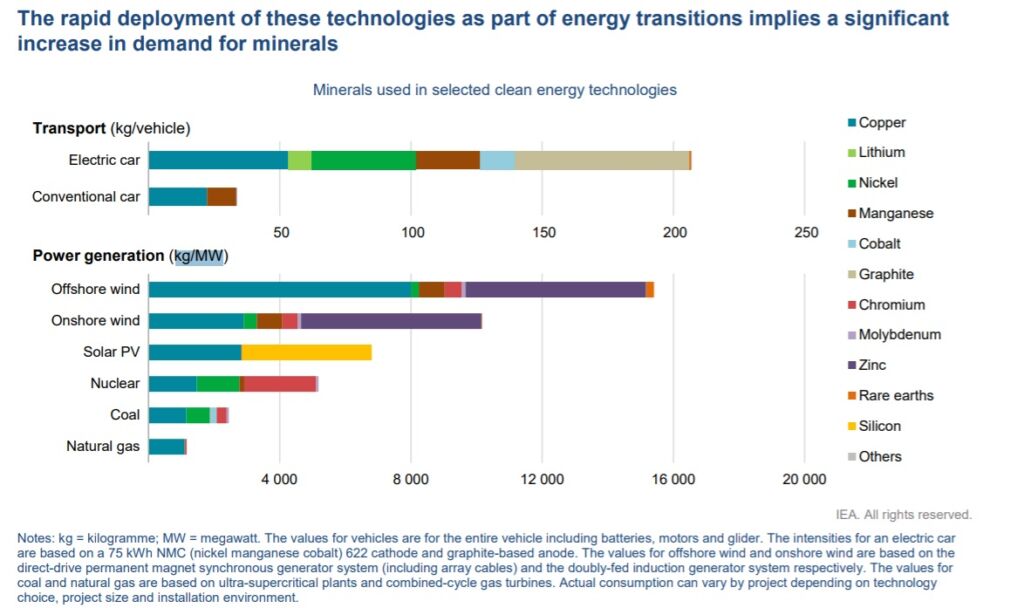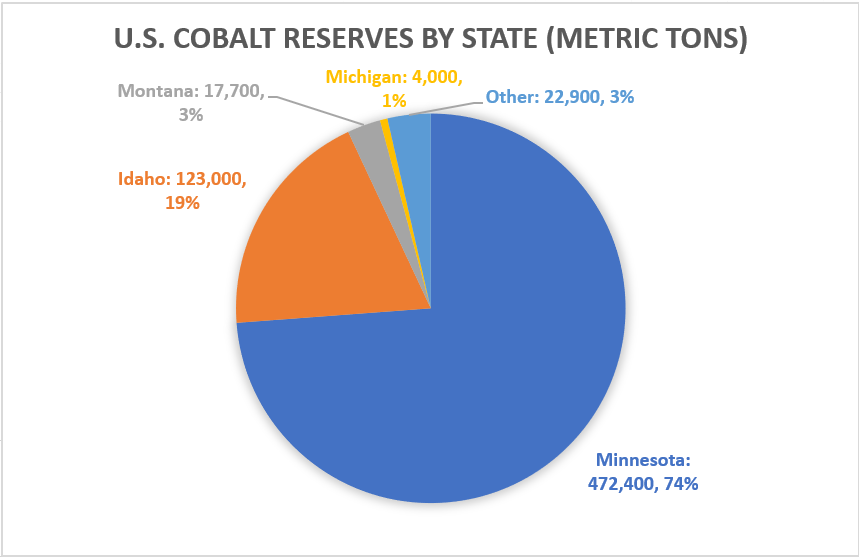Walz’s California car mandates would require more cobalt than Polymet would produce
Gov. Tim Walz has decided to push forward with his deeply unpopular California car mandates, which would require automakers to sell 14,000 EVs per year in Minnesota. Mandating these electric cars would require more cobalt every year than PolyMet would produce.
Demand metals would soar due to Walz’s California car mandates because a recent study by the International Energy Agency (IEA) finds electric cars require much more metal than traditional cars, and this metal will need to come from somewhere.
If these metals aren’t mined in Minnesota, they will likely come from somewhere with fewer protections for workers or the environment.

One of the primary metals used in electric cars is cobalt. The vast majority of the world’s cobalt comes from the Democratic Republic of the Congo, where as many as 40,000 children work in cobalt mines, digging the ore by hand and washing it in rivers.

According to the IEA study, each electric car requires 13.3 kilograms (29.26 pounds) of cobalt, which is primarily used in the car’s battery. This means Walz’s California car mandates would increase the annual demand for cobalt by about 186 metric tons per year, which amounts to about 0.13 percent of global cobalt production.
Luckily, the governor can sidestep the moral dilemma of importing cobalt mined in the Congo if he strongly supports copper-nickel mining in Minnesota.
The Duluth Complex is one of the largest undeveloped copper-nickel deposits in the world, and Minnesota is also home to 74 percent of America’s cobalt reserves, according to the Critical Minerals Summary compiled by the United States Geological Survey (USGS).

According to the technical report for PolyMet submitted to the Minnesota Department of Natural Resources, the mine would produce approximately 155 tons of cobalt annually, if the mine processes 32,000 tons of ore per day. This means the demand for cobalt from the California car mandates could almost be matched by the output from the mine.
Walz’s attempt to force California car mandates on Minnesota drivers remains an incredibly bad idea that will increase the cost of driving for everyone. But if he decides to go through with these regulations, he should at least acknowledge that doing so will increase the global demand for cobalt.
Walz has the power to help offset this increase in global cobalt demand by promoting environmentally responsible mining in Minnesota. By supporting mining in Minnesota, he would be supporting ethically-mined metals and help create hundreds of good-paying jobs.